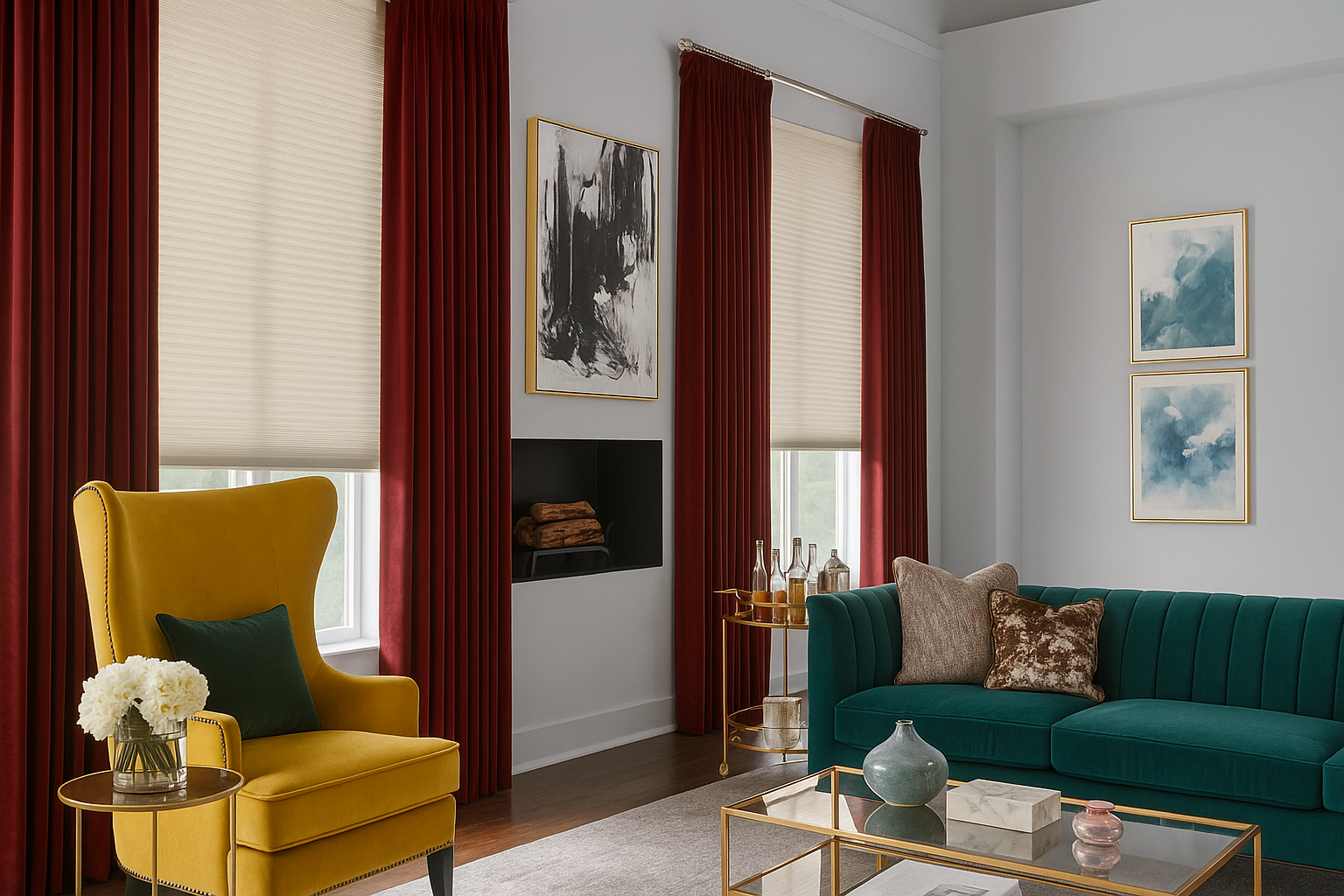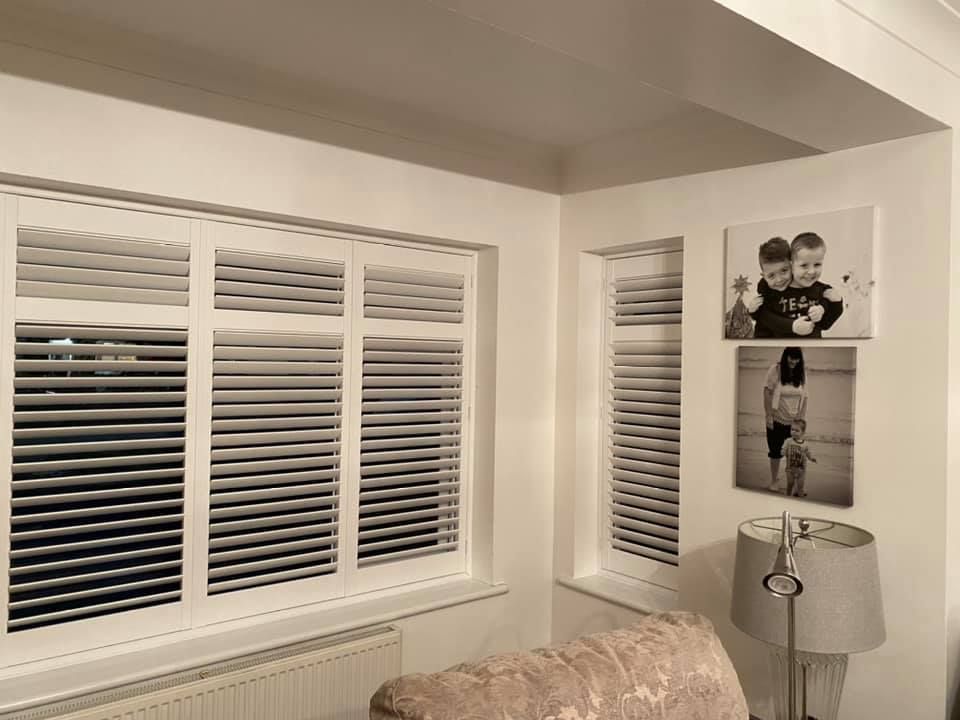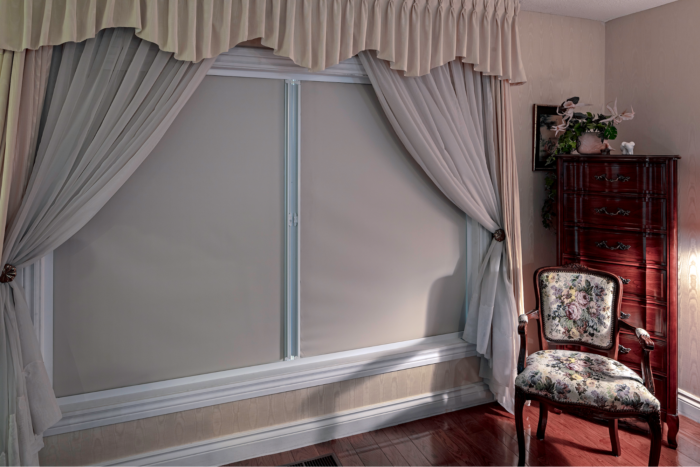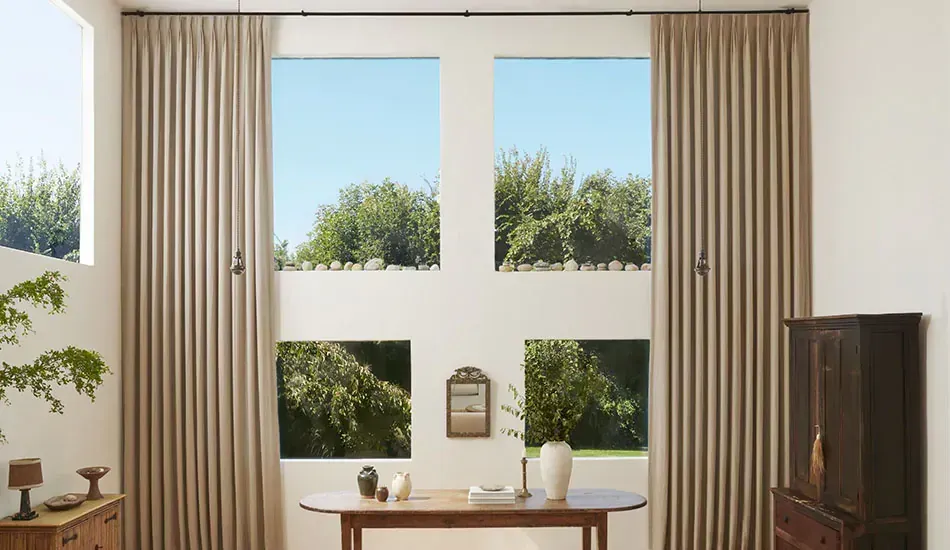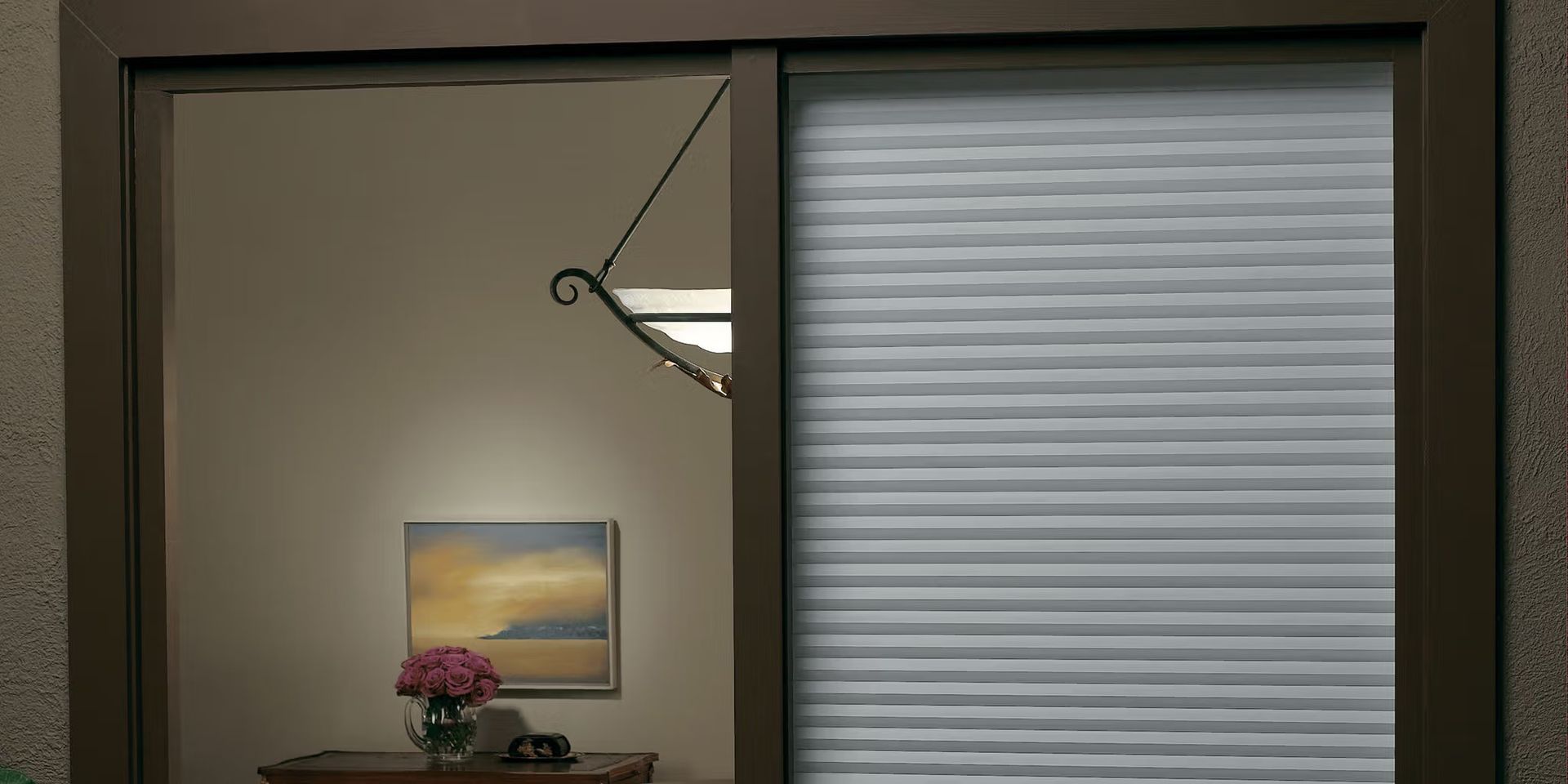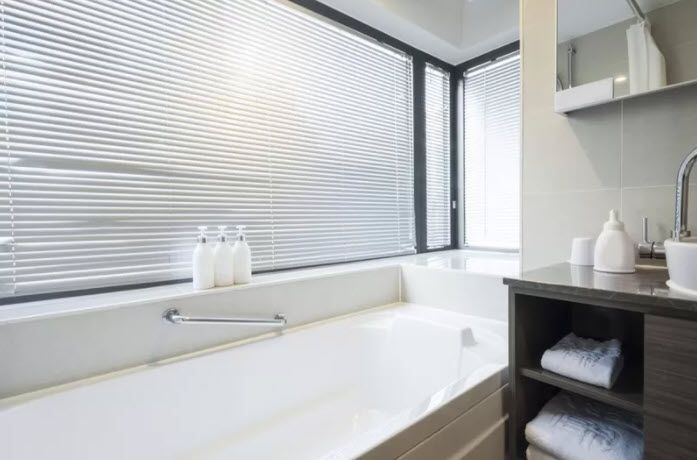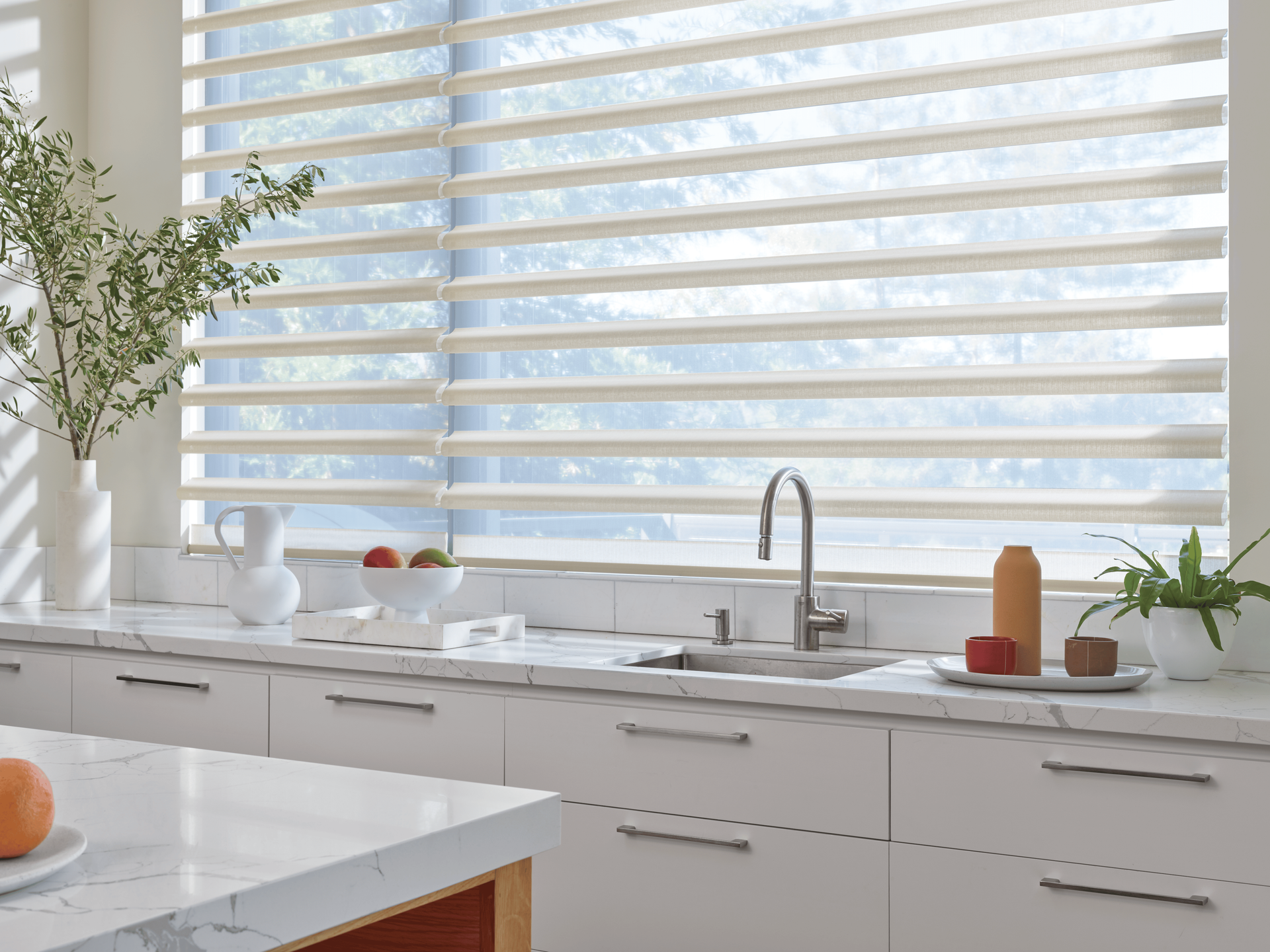What Is the Best Window Treatment for a Home Theater? Expert Comparison and Smart Design Tips
TLDR;
The best
window treatment for a home theater is blackout shades or curtains because they block outside light and reduce glare on your screen. Cellular shades are also excellent because they add insulation and noise reduction. For the ultimate setup, layer blackout treatments with motorized shades for convenience, energy efficiency, and a true theater-like experience.
Why Home Theater Window Treatments Matter
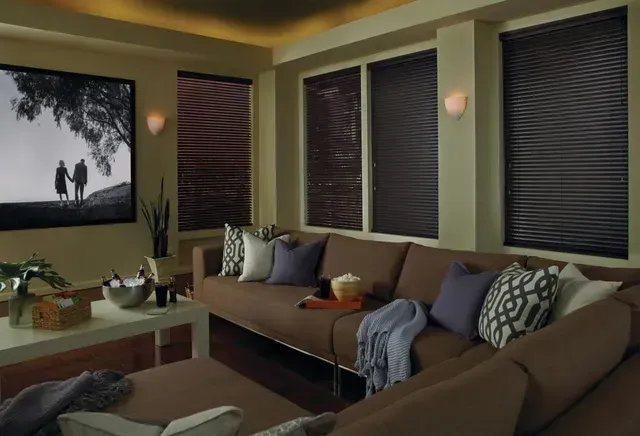
Creating a home theater goes beyond buying a projector and speakers. Window treatments play a critical role in picture quality, sound control, and comfort. Without the right coverings, even the best projector loses contrast and clarity. Poorly chosen treatments let in light leaks, distort acoustics, and lower the immersive effect. Love Is Blinds MI emphasizes that your choice of window covering can define the success of your home theater experience.
Core Requirements for Home Theater Window Treatments
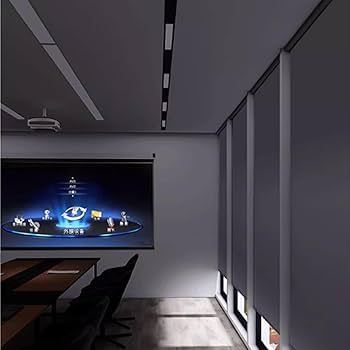
Light Control and Glare Reduction
The most important factor is blocking light. Even small leaks reduce contrast and create glare.
- Room darkening
shades dim the room but may allow some glow at the edges.
- Blackout treatments eliminate light completely when installed with side channels.
- Overlapping curtains or double-layer systems help close gaps.
Sound and Acoustic Performance
Windows reflect sound and allow external noise inside. Effective treatments improve clarity and reduce distraction.
- Heavy drapes with dense fabric absorb mid and high frequencies.
- Cellular shades add an insulating air pocket that reduces outside noise.
- Acoustic layering, such as pairing curtains with shades, lowers reverberation.
Thermal and Energy Efficiency
A home theater runs for hours with equipment generating heat. Insulated treatments help maintain comfort.
- Cellular honeycomb shades trap air and improve R-value.
- Blackout curtains with thermal lining reduce heat gain and loss.
- Shutters provide an additional physical barrier.
Style and Visual Integration
Window treatments should blend with your theater’s theme.
- Floor-to-ceiling blackout curtains mimic a cinema look.
- Neutral shades match walls for minimal distraction.
- Custom framing hides hardware and creates a clean finish.
Automation and Convenience
Motorized window treatments are ideal for theaters.
- Shades lower automatically when you start a movie.
- Smart home integration allows voice or app control.
- Timed settings ensure consistent light management.
Durability and Maintenance
Longevity is often overlooked.
- Curtains require regular vacuuming to prevent dust buildup. Shades resist warping in humidity. High-quality tracks and motors extend usability. For households with sensitivities, choosing
allergy-friendly window treatments can also make your home theater healthier and more comfortable.
- Shades resist warping in humidity.
- High-quality tracks and motors extend usability.
Types of Window Treatments for Home Theaters
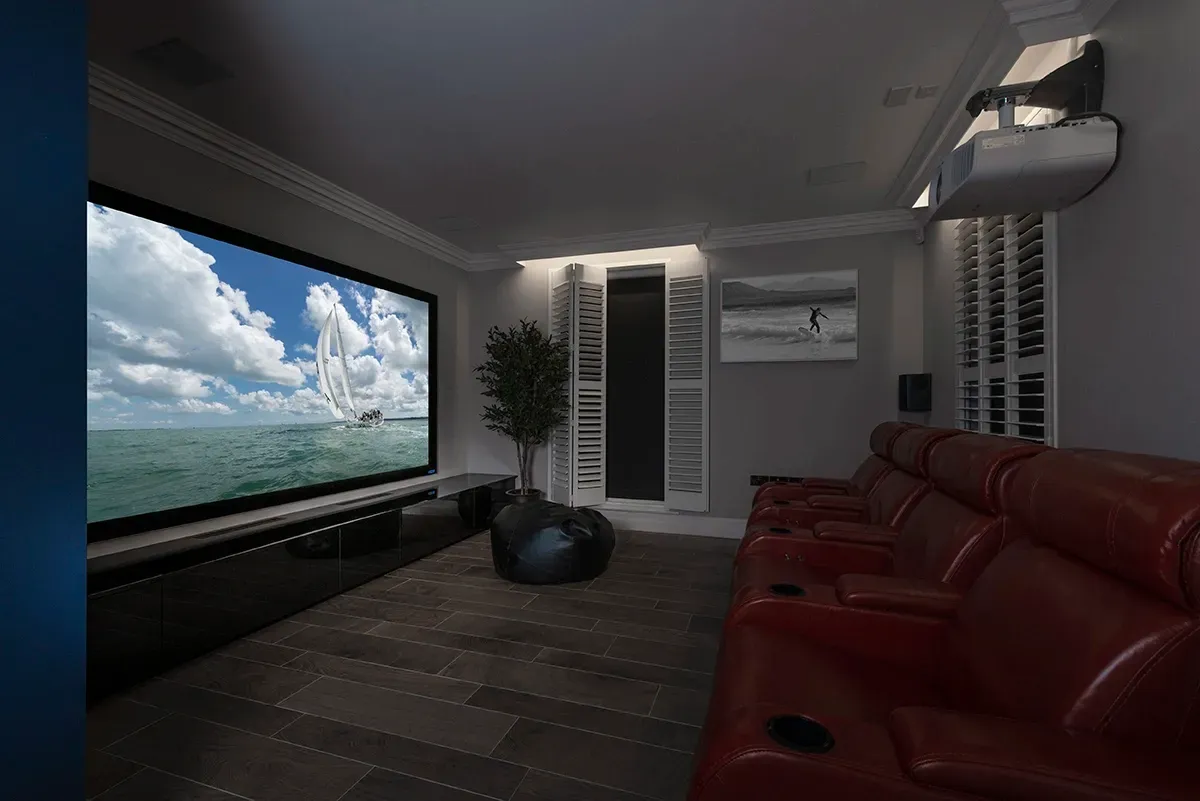
Blackout Curtains and Drapes
- Maximum darkness when layered with liners
- Thick fabric improves acoustics
- Traditional theater-style appearance
Roller Shades
- Sleek design, fit close to the frame
- Blackout rollers eliminate light leaks when paired with side channels
- Motorized options improve ease of use
Cellular or Honeycomb Shades
- Energy-efficient with thermal benefits
- Noise absorption through air pockets
- Available in blackout versions for theaters
Blinds and Shutters
- Plantation shutters provide solid coverage but limited sound absorption
- Roman
blinds offer style but less blackout performance
- Venetian blinds are less suited due to gaps in slats
Layered Solutions
Combining treatments enhances performance.
- Roller shade inside, blackout curtain outside
- Cellular shade paired with heavy drapes
- Shutters layered with curtains for light blocking and insulation
Special Window Cases
- Skylights require custom blackout shades with side tracks
- Large floor-to-ceiling windows need motorized rollers or curtain walls
- Windows behind seating may require slim-profile shades to avoid bulk
Comparison by Scenario
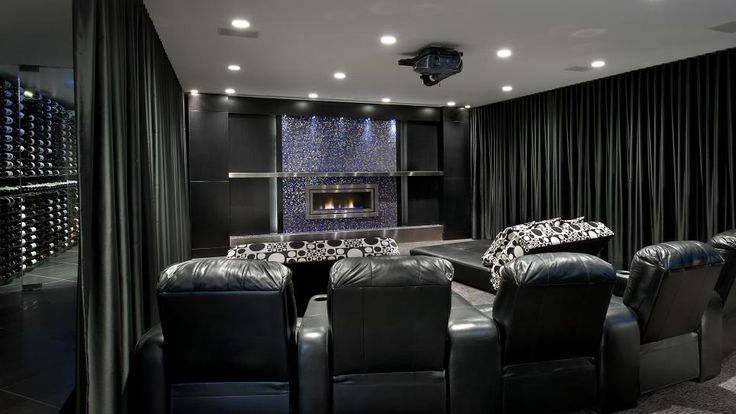
By Budget
- Entry level: blackout curtains with standard rods
- Mid-range: cellular blackout shades with manual operation
- Premium: motorized layered systems integrated with home automation
By Climate
- Humid areas: synthetic fabric curtains to resist moisture
- Cold climates:
cellular shades for thermal insulation
- Hot sunny regions: layered solutions to reduce solar gain
By Room Layout
- East or west-facing windows need strong blackout to fight sun
- Basements need less glare control but better insulation
- Multi-window walls require consistent treatments to maintain balance
By Priorities
- Acoustic focus: heavy lined curtains layered with shades
- Energy savings: cellular blackout shades
- Style priority: designer drapes with custom finishes
Installation and Best Practices
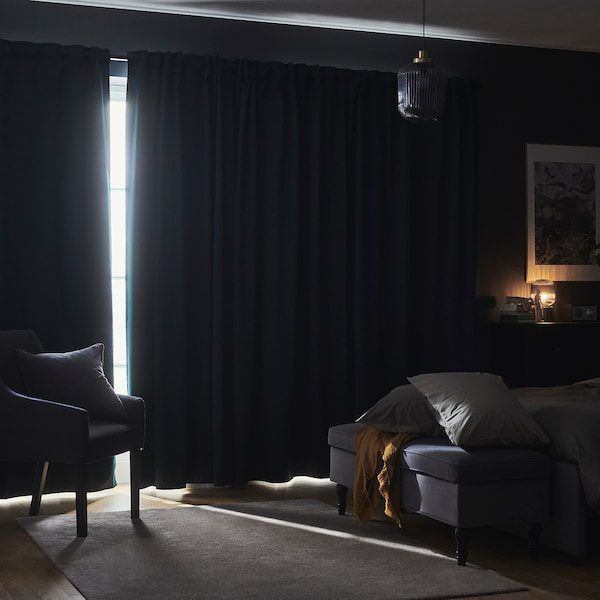
Measuring Correctly
- Measure width, height, and depth precisely
- Account for casing and overlap to prevent leaks
Side Channels and Sealing Edges
- Side tracks eliminate edge glow, and overlapping curtain rods reduce light seepage. For additional strategies, see our full guide on
preventing curtain light bleed to achieve true blackout performance.
- Overlapping curtain rods reduce light seepage
Mounting and Framing
- Inside mounts fit snugly but risk small leaks
- Outside mounts overlap the frame and improve blackout
Motorization and Smart Controls
- Choose battery or hardwired systems
- Integrate with smart hubs for automated closing
Maintenance and Longevity
- Vacuum or brush curtains regularly
- Wipe roller shades with microfiber cloths
- Inspect tracks and motors annually
Cost and Long-Term Value
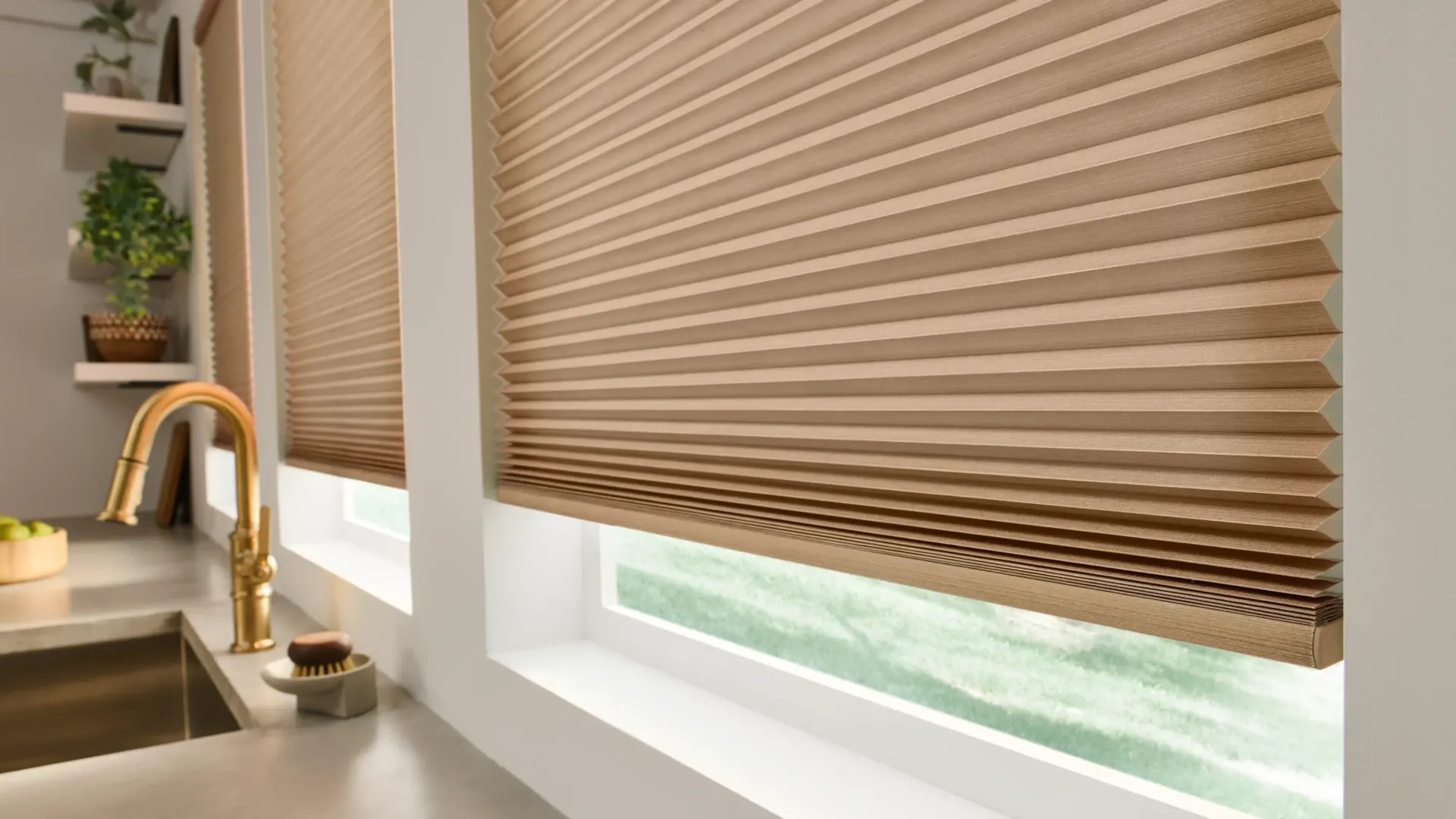
While costs vary, the return comes in comfort, energy savings, and improved theater quality. Blackout treatments improve projector performance. Cellular shades lower energy bills. Motorized systems extend product lifespan by reducing handling.
FAQs
What do I do about light leaks?
Install side channels, overlap curtains, or add a second layer of fabric.
How do I reduce echo from windows?
Use heavy curtains or combine cellular shades with drapes for sound absorption.
Can I retrofit treatments to existing windows?
Yes, outside-mount blackout rollers and curtain rods cover most standard frames.
What if I have multiple windows?
Use consistent treatments across all windows to avoid uneven lighting.
Best option for rentals or temporary setups?
Freestanding blackout curtains or tension rods with drapes offer flexibility without permanent changes.
Decision Guide for Choosing the Best Window Treatment
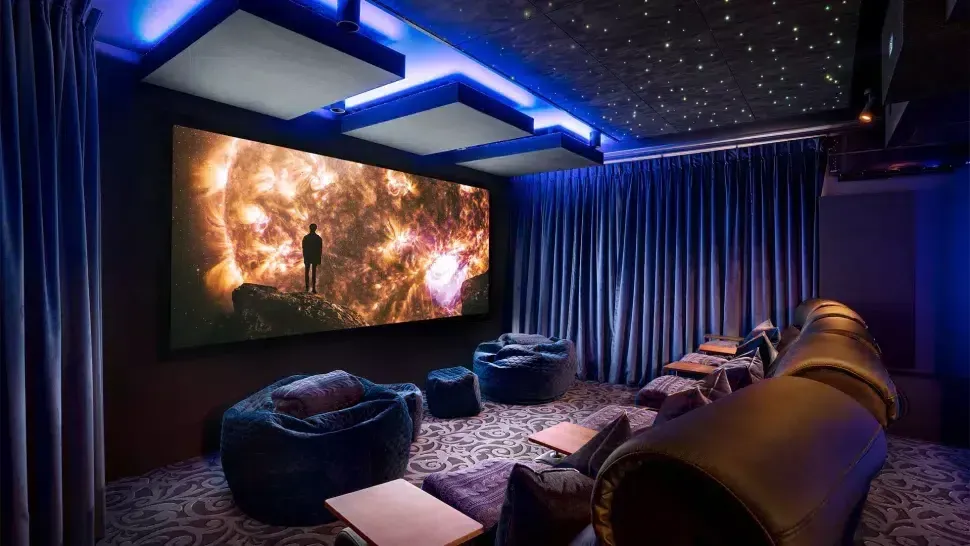
- For maximum darkness: blackout curtains with side channels
- For energy savings: cellular shades with blackout lining
- For automation:
motorized roller shades with smart integration
- For layered performance: roller shades paired with drapes
Final Thoughts on Choosing the Best Window Treatment for a Home Theater
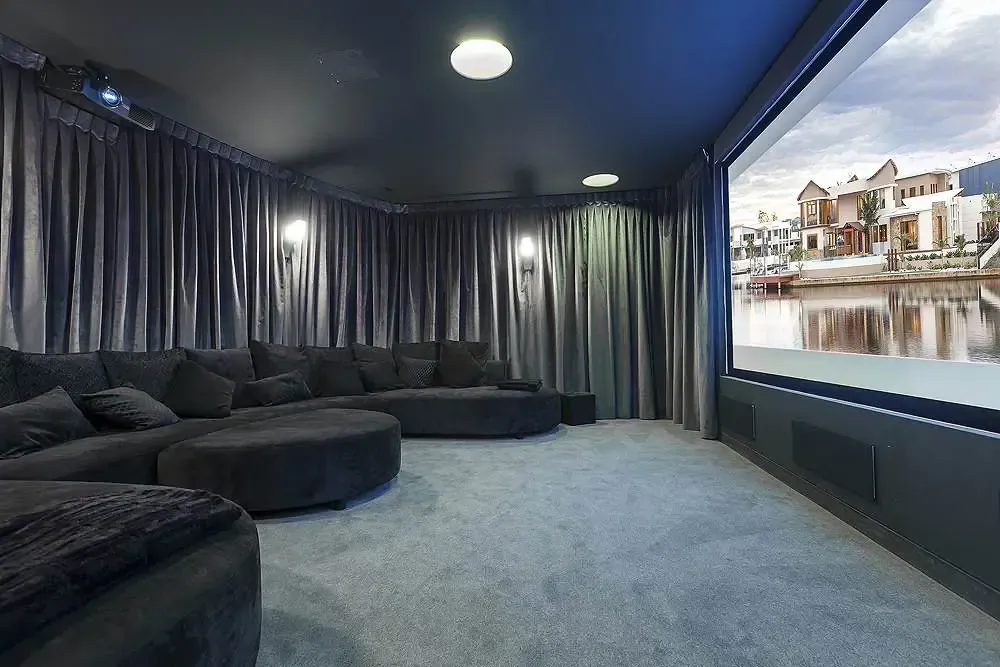
The best window treatment depends on your priorities. Blackout curtains remain the strongest choice for total darkness. Cellular shades add insulation and sound absorption. Motorized options deliver convenience and smart home control. Love Is Blinds MI recommends layering solutions for the highest performance. With careful planning and proper installation, your home theater achieves professional-level results that elevate every movie night.


